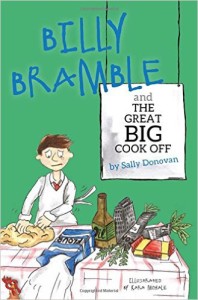 Author, adoptive mom (via foster care,) columnist and award-winning activist, Sally Donovan understands adoption, adoptive families and the challenges faced by families raising–and loving–children whose lives began in trauma. Humor, candor and vulnerability infuse her writing. Until now, Sally has written for adults and her books offer a refreshing resource. Reading them feels like having an honest chat with a friend who really understands the heart-palpitating roller-coaster journey that adoptive family life can be.
Author, adoptive mom (via foster care,) columnist and award-winning activist, Sally Donovan understands adoption, adoptive families and the challenges faced by families raising–and loving–children whose lives began in trauma. Humor, candor and vulnerability infuse her writing. Until now, Sally has written for adults and her books offer a refreshing resource. Reading them feels like having an honest chat with a friend who really understands the heart-palpitating roller-coaster journey that adoptive family life can be.
For many reasons, I am a fan of Sally’s writings. She shuns candy-coating, admits that adoptive parenting can be gun-shot-to-the-chest frightening, and still so, so worth while. Platitudes and rose-colored glasses take a back seat when Sally writes. As a consequence, her books ring with authenticity, encouragement and community.
Sally’s newest undertaking is a wonderful book for middle grade readers that thumps funny bones and pulls heartstrings. Written in the first person, the 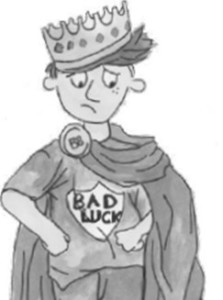 tale provides a peek into the inner world of one Billy Bramble. Not identified as an adoptee, Billy definitely serves as the poster child for kids wrestling with the demons of trauma. (The origins of his trauma are not revealed. This helps to make the story connect with a wide audience)
tale provides a peek into the inner world of one Billy Bramble. Not identified as an adoptee, Billy definitely serves as the poster child for kids wrestling with the demons of trauma. (The origins of his trauma are not revealed. This helps to make the story connect with a wide audience)
On the surface, Billy is a character that the world finds difficult to love and accept. He’s disruptive, mouthy, uncooperative, provocative, and disorganized. As the saying goes, if it weren’t for bad luck, Billy would have no luck at all. The world views Billy as “trouble”, an inconvenient and annoying thorn that pricks and frustrates others. He has few friends.
What he does have is a constant companion: Gobber–an imaginary but very powerful companion embodied as a wild dog. Tyrannized by Gobber, Billy “wonders why no one else can see him, or hear him, or feel him.” The malevolent Gobber “scares [Billy] half to death” actually. With heart-breaking honesty, Billy asserts, “I think that Gobber is my life sentence.”
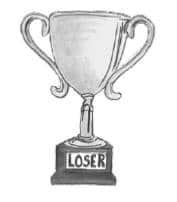 Poor Billy suffers as much from Gobber’s destructive behaviors as his family, classmates, and teachers. Gobber’s presence is so formidable, so consuming and so committed to Billy’s failure, that the reader empathizes with Billy’s struggles and cheers for his success. The brilliance of Sally’s writing allows the reader to feel Billy’s anguish and frustration as he struggles to rein in his self-saboteur.
Poor Billy suffers as much from Gobber’s destructive behaviors as his family, classmates, and teachers. Gobber’s presence is so formidable, so consuming and so committed to Billy’s failure, that the reader empathizes with Billy’s struggles and cheers for his success. The brilliance of Sally’s writing allows the reader to feel Billy’s anguish and frustration as he struggles to rein in his self-saboteur.
Billy longs to relax his vigilance, walk through his days without Gobber nipping at his heels, terrifying and  distracting him. He yearns to have the privileges and self-control of other kids and like them, to have his own Facebook account. The closest he can come is to name his pet chicken Facebook. I know, right. Talk about a stacked deck! Fortunately, Donovan counterbalances the stresses of Billy’s challenges with a healthy dose of humor and irony. She succeeds in making Billy a character that readers root for instead of dismissing him as “other” or someone whom they can pigeonhole as odd or weird.
distracting him. He yearns to have the privileges and self-control of other kids and like them, to have his own Facebook account. The closest he can come is to name his pet chicken Facebook. I know, right. Talk about a stacked deck! Fortunately, Donovan counterbalances the stresses of Billy’s challenges with a healthy dose of humor and irony. She succeeds in making Billy a character that readers root for instead of dismissing him as “other” or someone whom they can pigeonhole as odd or weird.
Black and white illustrations provide a welcome break from the text and expand it well. One features a 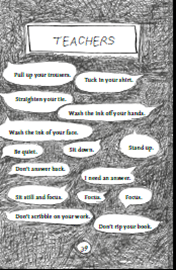 litany of teacher-corrections and directives familiar to all kids, but especially the Billies of the world. Readers will identify when Billy receives a letter from the teacher that reports on his latest transgression. We all know what it is like to have to face the aftermath of a poor choice.
litany of teacher-corrections and directives familiar to all kids, but especially the Billies of the world. Readers will identify when Billy receives a letter from the teacher that reports on his latest transgression. We all know what it is like to have to face the aftermath of a poor choice.
For most of us, this is a relatively rare occasion. But, for Billy, it is the constant refrain of his day life. As much as his parents and teachers wish Billy could pull himself together, Billy wants it even more earnestly. But not Gobber; he wants to keep Billy trapped in a Mixmaster of fear, worry and anger.
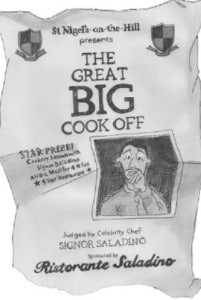 The one spark of hope for release from Gobber’s reign of terror is cooking. It provides Billy an exit ramp from the super highway of chaos and creates a place of refuge and redemption for Billy. Gobber makes a formidable enemy; he does not surrender easily.
The one spark of hope for release from Gobber’s reign of terror is cooking. It provides Billy an exit ramp from the super highway of chaos and creates a place of refuge and redemption for Billy. Gobber makes a formidable enemy; he does not surrender easily.
Several recipes are included, Kids will especially enjoy “Angry Pizza” which involves pounding dough which is a great way to channel frustrations. Plus, once complete, it tastes delish!
Parents can enjoy this book for the valuable insights it offers into the struggles of kids like Billy. Billy’s folks are well-intentioned, committed to supporting their child. And they are quite human. They get frustrated, angry and don’t always give the perfect response. Yet it is clear that they love Billy and intend to stay in the trenches with him.
Will Billy finally meet success, defeat Gobber, and win the Great Cook Off? Read this delightful book to discover the answer. While you’re at it, check out Sally’s other books!
Watch this video to hear children speak of their struggles.
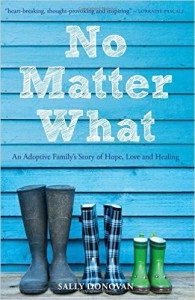
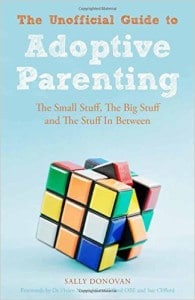 I originally posted my reviews of The Unofficial Guide to Adoptive Parenting and No Matter What on the blog I write for GIFT Family Services: (Growing Intentional Families Together.) They are exceptional books that merit a place on every adoptive family’s bookshelf. For adoptive families it is a drink of water that helps slake a desperate thirst for resources that are both honest and practical.
I originally posted my reviews of The Unofficial Guide to Adoptive Parenting and No Matter What on the blog I write for GIFT Family Services: (Growing Intentional Families Together.) They are exceptional books that merit a place on every adoptive family’s bookshelf. For adoptive families it is a drink of water that helps slake a desperate thirst for resources that are both honest and practical.
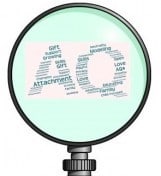 AQ Lens: Kids who are dealing with the aftermath of trauma–especially trauma associated with family disruption, loss and adoption–will recognize a kindred spirit in Billy without his being specifically identified as an adoptee. I think this will reassure young readers to learn that trauma originates from many sources, not only from adoption. This expands his community of potential peers.
AQ Lens: Kids who are dealing with the aftermath of trauma–especially trauma associated with family disruption, loss and adoption–will recognize a kindred spirit in Billy without his being specifically identified as an adoptee. I think this will reassure young readers to learn that trauma originates from many sources, not only from adoption. This expands his community of potential peers.
Readers will connect with the empathetic tone of the book which clearly depicts both Billy’s heartfelt desire to succeed, behave and control his life. This lack of judgment and blame will be welcome.
*I received a complimentary copy from the publisher in exchange for an honest and unbiased review.
Our theme for today’s Diverse Children’s Books linkup is Diverse Book(s) Featuring a Character with a Disability. (Need ideas? Check out past winners of the Schneider Family Book Awards.) (The theme is only a suggestion. Diverse posts on alternate topics are always welcome.)
What Is #DiverseKidLit?
Diverse Children’s Books is a book-sharing meme designed to promote the reading and writing of children’s books that feature diverse characters. This community embraces all kinds of diversity including (and certainly not limited to) diverse, inclusive, multicultural, and global books for children of all backgrounds.
We encourage everyone who shares to support this blogging community by visiting and leaving comments for at least three others. Please also consider following the hosts on at least one of their social media outlets. Spread the word using #diversekidlit and/or adding our button to your site and your diverse posts.

Most Clicked Post from Last Time
Our most clicked post from the previous #diversekidlit is ADA’S VIOLIN: THE STORY OF THE RECYCLED ORCHESTRA OF PARAGUAY from Linda at The Reader and the Book. This story is based on the true origins of the Cateura orchestra in Paraguay, and Linda’s post contains a great summary of the book as well as additional information about the author, illustrator, and real-life orchestra!
#DiverseKidLit is Hosted by:
Jane @ Rain City Librarian Blog / Twitter / InstagramMarjorie @ Mirrors Windows Doors Blog / Twitter / Facebook / Pinterest
Mia @ Pragmatic Mom Blog / Twitter / Facebook / Pinterest / Instagram
Myra @ Gathering Books Blog / Twitter / Facebook
Want to be notified when the next #diversekidlit linkup goes live? Click here to join the mailing list. Interested in joining as a host or an occasional co-host? Contact katie@thelogonauts.com
(Never participated in a linkup before? Please click here for a more detailed step-by-step.)
Get #DiverseKidLit Recommendations on Pinterest!
We’ve started a new group board on Pinterest to highlight all the amazing posts and resources for Diverse Children’s Books. Please consider following the board for even more great books!
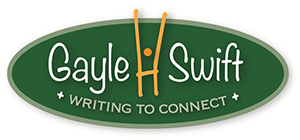


Nice choice. I’m an adoptive parent of two. Will have to read this book. All parents have dreams for their children, but you soon learn to let go of those dreams and learn acceptance and patience. You don’t always know much history — especially when adopting older children. My children are grown now and are doing what they love. And, that’s what is really important.
Patricia:
Yes, it is so important to allow kids to develop in accordance with their own abilities and talents. I especially like how this book depicted Billy’s earnest desire to “behave” as well as the internal struggles that made “behaving” such a challenge.
I love the way that Billy’s background is left open-ended, so that kids from all sorts of backgrounds and experiences can relate to him and see their own stories played out in his. This story is a great reminder for those of us who work with children, as well – so often we just see children’s outward behaviour, and it’s easy to forget the internal struggles that many children experience.
I love that you got that message. I think that is the power of this book; it informs the reader that Billy is bothered and burdened by his difficult behavior and is actually doing his best to control himself.
Comments are closed.